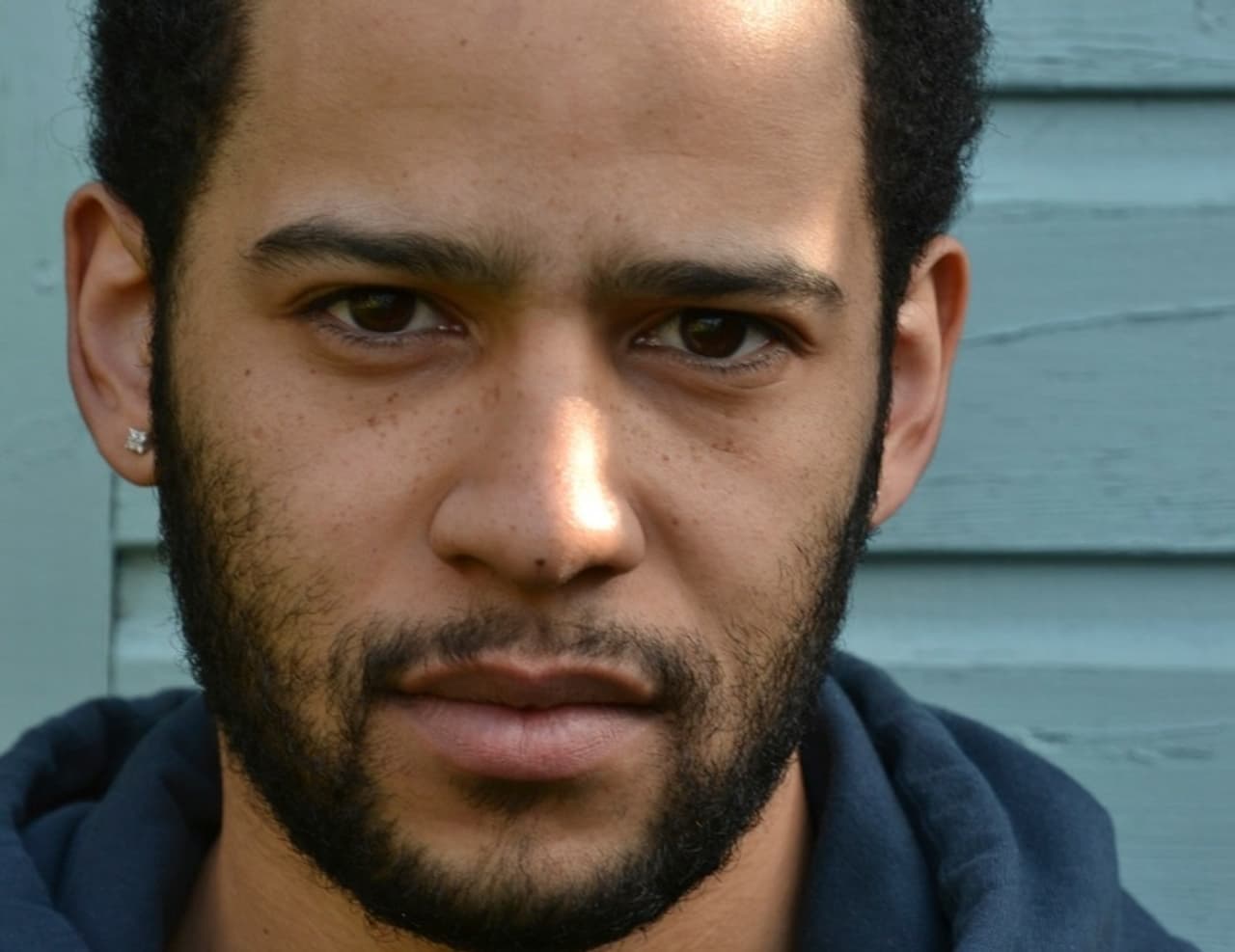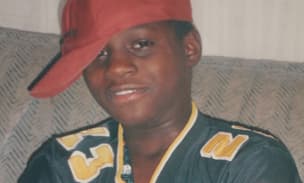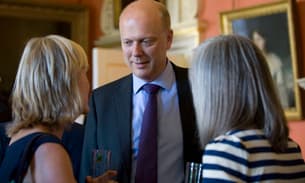
Case study: Ijah Lavelle Moore – innocent man acquitted after 14 months in jail
It was April 2012 and Ijah Lavelle Moore was with his friend Malcolm Francis. ‘X Box, football…bumped into other lads, chilled with them for a bit, had a smoke, a drink, went to Francis’s house. It was Friday night and there was loads of phone traffic… what you doin’ tonight?’
Lavelle Moore, who was 20, lived in Basford in Nottingham and had lots of friends in the area. He had seen another friend, Cameron Cashin, earlier that night and then been in touch a few times afterwards. Cashin texted Lavelle Moore at about 3.45am on the Saturday morning saying ‘Kum nah man’ [Come now man].
Fifteen minutes earlier 19-year-old Malakai McKenzie had been shot dead while sitting in a car with his brother and two cousins outside a pub called The Hubb, a mile or so away.
By daylight rumours were flying around: ‘It was this group of lads, that group of lads and then someone said it was Basford lads. That’s when my story started,’ says Lavelle Moore.
The following Wednesday morning at 5am, armed riot police blocked off the street where Lavelle Moore, his mother Lise and 17-year-old brother Malachi lived. The police came to their door. They told Malachi to come out with his hands up and took him out at gunpoint. Lavelle Moore wasn’t there.
According to Trish Lavelle, Ijah’s aunt, a trade union official with the Communication Workers Union, her sister Lise was told she didn’t have to go with the police but if she didn’t they could arrest her. She co-operated fully, thinking it was all a terrible mistake. She and Malachi were taken to different stations. He was released 30 hours later, and no further trouble came his way.
Ijah Lavelle Moore
It was Lavelle Moore they were looking for.
Lavelle Moore and Francis had already left town but had not gone very far. Their departure looked suspicious but Lavelle Moore says that they left because there had been other gun incidents on their streets and the murder had scared them. ‘There was a gunman on the loose killing people like us – we felt unsafe.’ When he heard about the raid on his house, although panicked, he says he thought the police would find the perpetrators and realise it had nothing to do with him or Francis.
It didn’t turn out that way. Cameron Cashin was eventually to be charged with the murder and handed down a life sentence. Lavelle Moore didn’t know at the time that he and Francis had been identified as two of four hooded figures approaching the car in which McKenzie was murdered. The case against Lavelle Moore also depended on his communications with Cashin that night and interpretation of that text. The prosecution case was that Cashin was summoning Lavelle Moore and Francis after the murder as his trusted lieutenants. Three other suspects had left the country. Two have never been found. The third was acquitted in a trial ending in February 2014.
At the police station, Lise rang Lavelle Moore and told him they wanted to talk to him. He refused. He says he didn’t know he was a suspect or he would, he says, have come forward, confident of his innocence.
Related story: Need for reform? The Bureau examines controversial law of joint enterprise
He and Francis were picked up and it was then he found out they were being charged with murder, attempted murder and the possession of a gun.
Lavelle Moore says he felt confident of his innocence but when his solicitor told him that despite being innocent he could still be found guilty under joint enterprise, he was angry. He had never heard of the law.
When Cameron Cashin was accused of the shooting, because of their communication with him on the night, Francis and Lavelle Moore were deemed to be part of a gang involved in a feud resulting in McKenzie’s death.
Ijah Lavelle Moore
But the initial evidence that they were two of four people seen on CCTV approaching the car at the time of the murder was dismissed before the trial. What remained was the mobile phone communication and further evidence attached to a jacket said to have been worn by Cashin. The police found it in Francis’s hotel room during the days he and Lavelle Moore were out of Nottingham in Leicester and Derby. They had indeed found a jacket but it was Francis’s, there was no DNA or other evidence to tie it to Cashin. They just had identical jackets.
A third piece of evidence centred on a snapshot. Lavelle Moore had turned 20 a couple of weeks before and had gone to a park with some friends to celebrate. Someone took a picture, which was produced as evidence by the prosecution. Cashin and Francis were in the photo. ‘This was meant to show that we were part of a gang, not just a bunch of lads on my birthday.’
The prosecution also had a photo taken two years previously of Lavelle Moore in his back garden with an air pistol and a BB gun, which, when the case came to court, they put forward as evidence of bad character. The judge disallowed it, saying: ‘Bad character evidence should not be used to bolster a weak case’ and ‘you can’t make a case on bad character alone’.
Lavelle Moore spent 14 months on remand awaiting trial. ‘It wasn’t nice but I didn’t let it eat me up.’ He took the opportunity to study while in prison, having been expelled from school at 16. His mother visited him regularly and they spoke often on the phone. Lavelle Moore says he and his mother hadn’t had the best of relationships. ‘At the time I was a little shit bag. But we connected more when I was in prison. She visited me every week and I rang her every day. I didn’t have that bond with her when I was on the other side of the wall. You take it all for granted – freedom, family, friends then when they’re taken away, you realise what you have lost.’
The trial started on May 20 2013. Three weeks in, Lavelle Moore rose as usual at 5am to get ready to go to court. A guard told him there was bad news, his mother was seriously ill.
Lise had had backache and had lost a lot of weight, which she had put down to stress. But that morning she collapsed and was diagnosed with bowel cancer, which had spread. It was terminal.
The Judge, Justice Royce, allowed Lavelle Moore to visit his mother under police guard. Lise died on June 8.
Four days later Lavelle Moore’s legal team put forward submissions to the judge: ‘Whatever view the Court takes…it is left with no evidence that Ijah Lavelle Moore fulfilled any of the roles for which the prosecution contend. It is submitted that not only is it speculation to suggest that he fulfilled any of the roles identified by the prosecution, but what is more, the existence of any such roles is also speculation.’
On June 17 the judge instructed the jury to acquit Lavelle Moore and Francis. ‘There is a real hurdle in the chain of events,’ he told the prosecution. ‘You cannot get Lavelle Moore and Malcolm Francis to Bagthorpe Close or The Hubb [scene of crime]. It is not a case where you can show knowledge that Cashin hadagun……Allwehaveisachainof inferences and suspicious activity. [There is ] no evidence of presence of Malcolm Francis and Lavelle Moore at Meridien court, or Bagthorpe close. …[they are] not on any CCTV. The image of the group on Lavelle Moore’s birthday is an inference.’ They were released.
Lavelle Moore reflects on the experience: ‘It has changed my life for the better in a way but fucked it up as well. It’s bitter sweet, like a fairytale gone wrong, because I got to make a bond with my mum and who knows would have happened if I hadn’t been arrested. Everything happens for a reason. But I feel cheated because a year and a half of my life was taken away, and my name was in the papers. People look at me and you can see they’re thinking, you got away with it. People judge you and you can’t blame them – we all do that. People I thought would have stuck around, didn’t. It’s made me look at life in a totally different way. I’ve got to because I haven’t got a mum. Readjusting is a big thing. I haven’t done 30 years but any time in prison is time in prison. I am trying to take advantage of life, trying make the most of it.’




